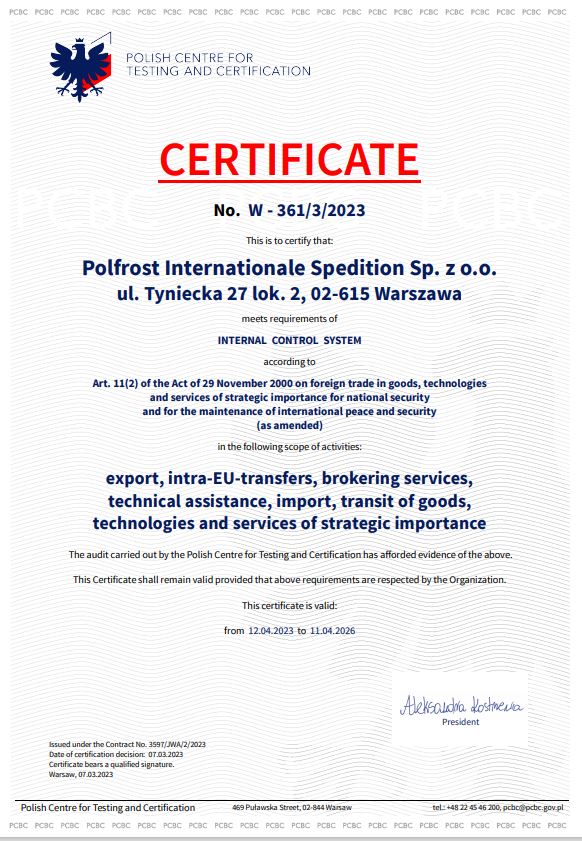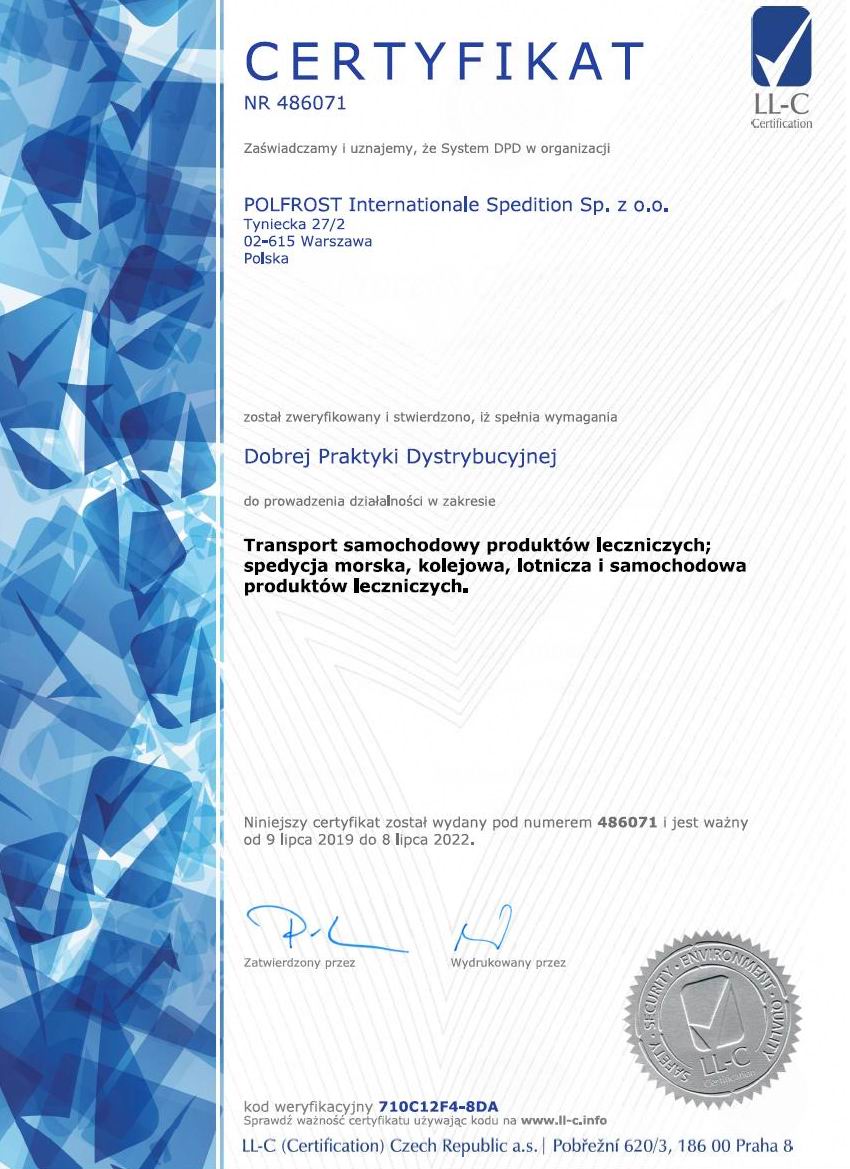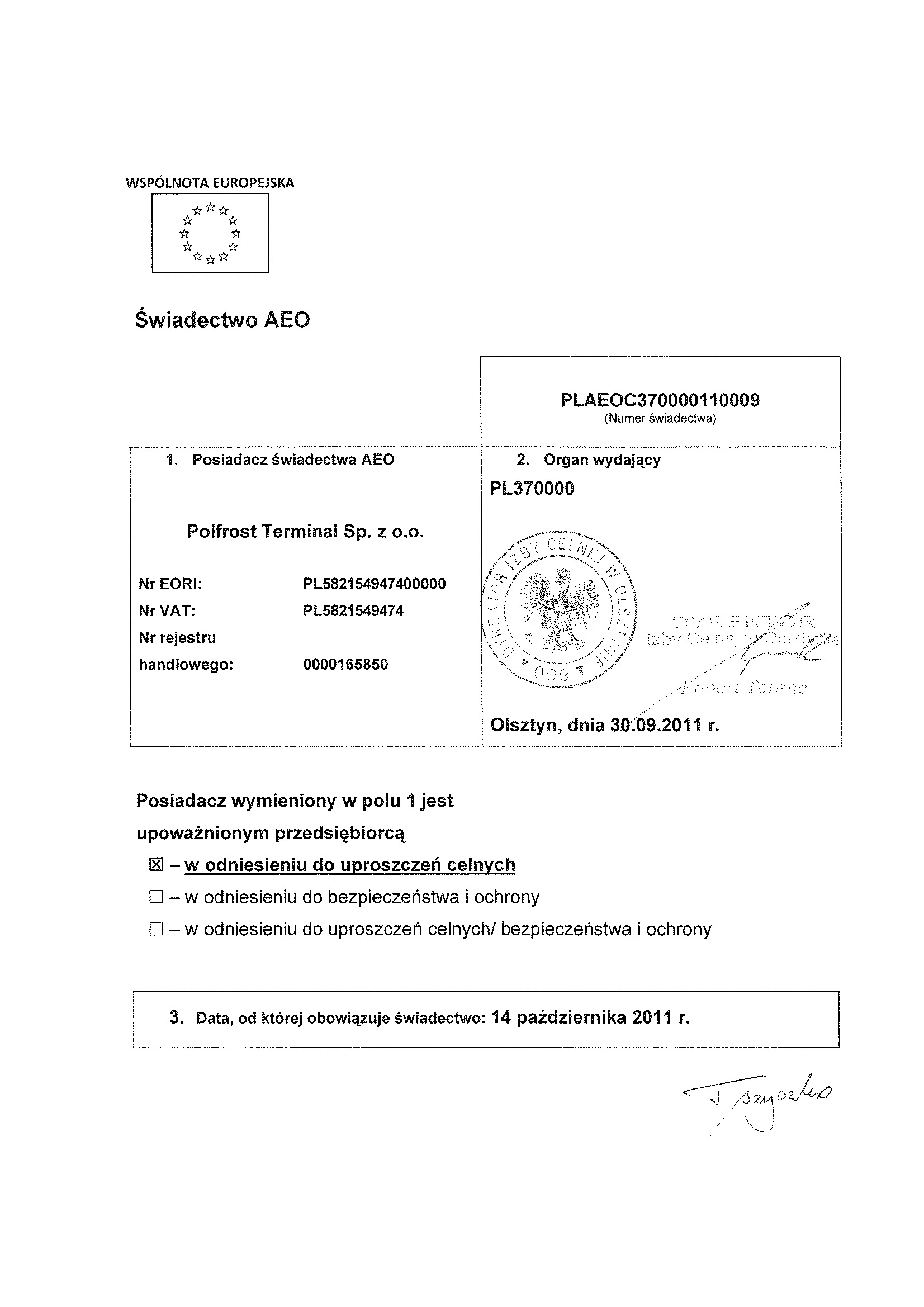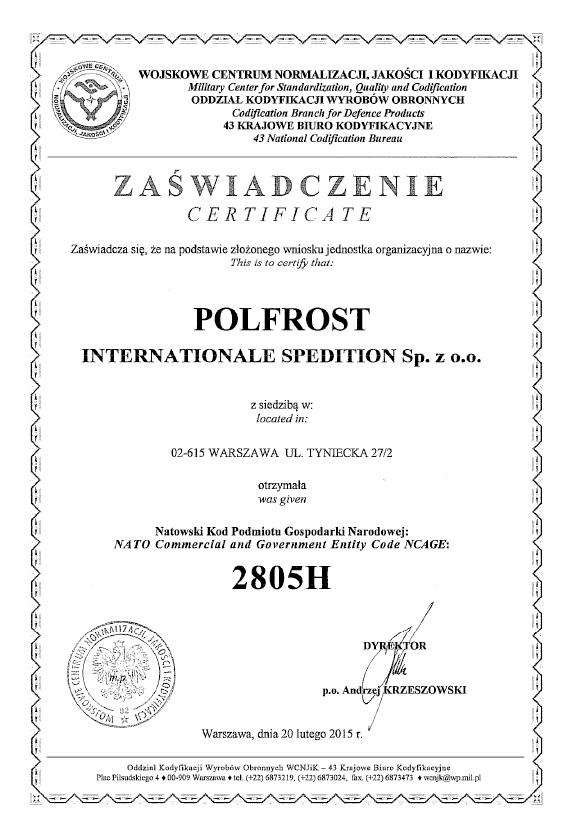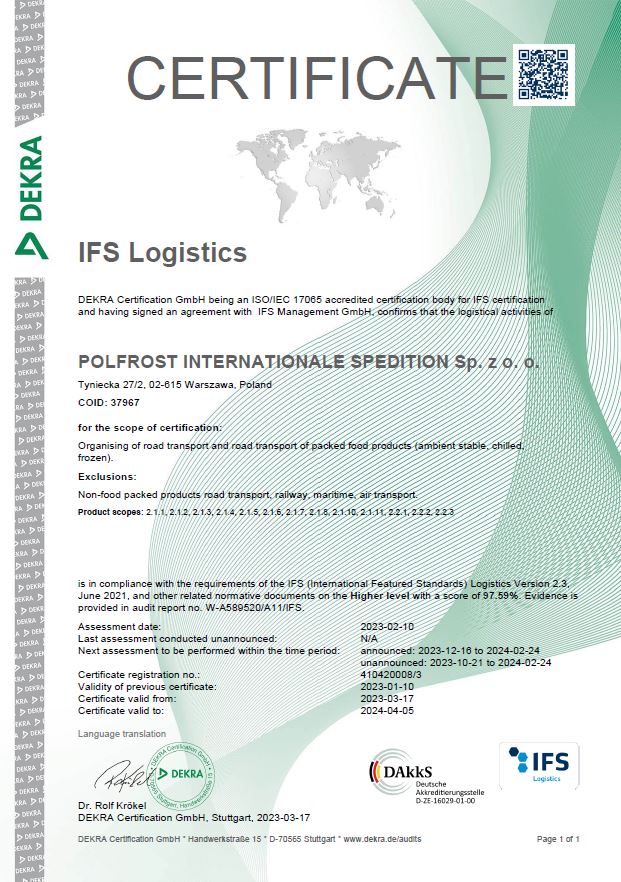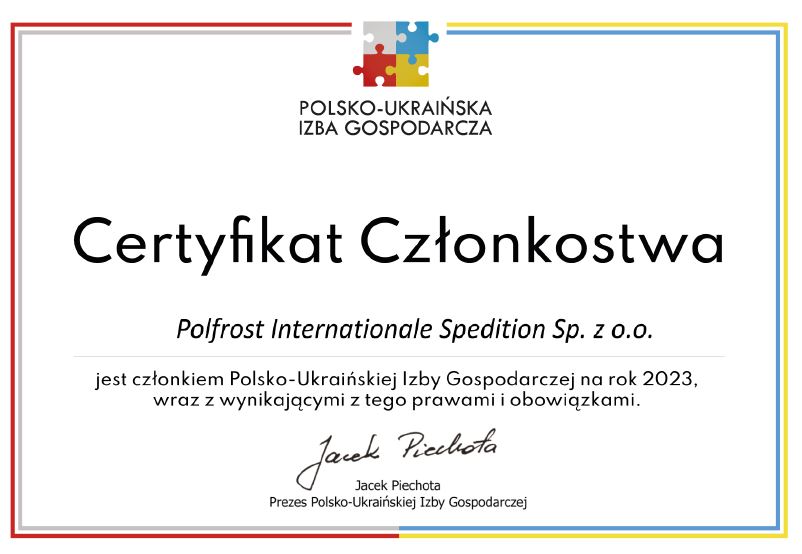Cooperation with our company means superior quality transport, forwarding, and logistics services. The implemented Integrated Quality Management System covers all areas of our activity. The basis of the system is ISO 9001, which was certified in 2004 and recertified to the current standard (9001: 2015-10).
As our company is growing, we have implemented further sector systems such as: HACCP, IFS, SQAS, WSK, AQAP, DPD, AEO.
As part of the quality management system, we have also introduced a supply chain security policy.
Our competences are confirmed by the following certificates:
ISO 9001:2015
The basis of our integrated quality management system is ISO 9001.
We have also implemented and apply the current ISO 9001: 2015 standard, which enhances documentation and information flow quality. It also supports the division of labor and responsibility, which translates into greater efficiency and increased customer satisfaction.
Good Distribution Practices
DPD is a set of rules, procedures and requirements that aim to guarantee the quality and consistency of medicinal products from the production stage to delivery at the pharmacy, as well as to ensure the legal origin of the medicinal product. The Principles of Good Distribution Practice were developed based on the guidelines of the European Commission and the Directive of the European Parliament (2011/62/EU of June 8, 2011) – Good Distribution Practice (GDP). Polfrost has obtained a certificate which covers key services for: road, sea, air, and rail freight.
WSK
The Internal Control System (WSK) is used in international trade in weapons or dual-use goods. The purpose of WSK is to protect all trading participants against actions that are inconsistent with national and international regulations on controlling this process. Polfrost has certified WSK in a wide range of its activities, ensuring customer security in the supply chain of military goods.
AQAP
AQAP, or Allied Quality Assurance Publication is a NATO quality management system for military suppliers. Through AQAP, the North Atlantic Treaty Organization has defined a quality system for the supply chain in the military industry and in related industries that cooperate with the military. A set of documents indicating the requirements for delivering supplies for the military was also prepared. However, these requirements do not define criteria for the product or production processes. The legal basis for AQAP requirements is the NATO standardization document – STANAG 4107. Our organization has implemented and certified the most important AQAP document – 2110: 2016 – in all key forwarding services: air, rail, car, sea transport, as well as project cargo.
AEO
One of the group companies – Polfrost Terminal Sp. z o.o. – has successfully implemented and certified AEO (Authorized Economic Operator). The AEO certificate testifies to exceptional customs services competence. It is also a confirmation of the simplifications introduced by the company in the customs procedure, which have made it possible to speed up the clearance and customs controls in the supply chain.
NCAGE
The NATO Code of National Economy Entity NCAGE (NATO Commercial and Government Entity) identifies Polfrost in the NATO NCS Codification System and in the NMCRL database (NATO Master Catalog of References for Logistics). This enables the company to provide solutions for the needs of the Polish Armed Forces and the forces of the North Atlantic Alliance countries.
The NCAGE code is assigned by the Military Center for Standardization, Quality and Codification as part of the NATO Codification System. It is awarded to entities of the national economy whose business activity is related to the product range covered by the Classification of Defense Products (KWO) or to the provision of defense services.
As a company that provides logistic services, including for the Polish Army, on February 20, 2015 Polfrost has obtained the code number 2805H.
IFS Logistics
IFS Logistics is currently one of the most important standards in the transport and storage of food and industrial products.
It is aimed at ensuring the safety of transported products and ensuring transparency of the activities of distribution companies throughout the supply chain. IFS covers all logistics processes: storage, transport, loading, and unloading. This standard applies to the transport of both food products (temperature controlled or not) and other cargo.


